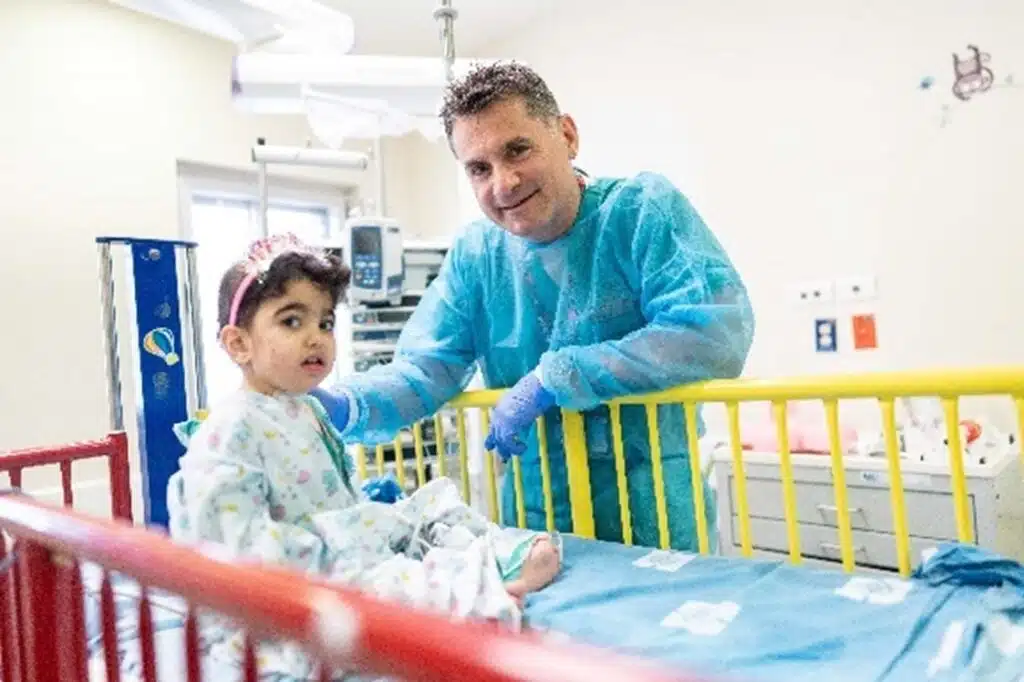
The Beating of Tiny Hearts – Hadassah’s PCCCU
January 2024
In recent years, Hadassah Medical Center – Pediatric Cardiac Critical Care Unit (PCCCU) has embraced the Neo-Developmental Care approach, in alignment with top medical centers around the world. This approach is designed to address issues that are specific to neonates with congenital heart defects. Principles that are implemented include postponing major surgeries as long as possible, involving the parents in every step of the infant’s care, and minimizing the length of time spent attached to a ventilator or hospitalized in the unit.
“We have modeled our unit after the best, paying attention to each child’s overall well-being. Our specialists protect the life-sustaining muscles of the patient’s heart, the tiny nerve cells that communicate with the heart to keep it pumping, and the families that support and nurture the child. That’s what guides us at Hadassah.”
- Dr. Uri Pollak, Head of the PCCCU (pictured with young patient)
The local doctor said 18-month-old Moshe* just had a virus. His cheeks were red. But as his temperature kept rising and his vomiting continued, his mother Hedva* took him to an emergency clinic that sent them on to Hadassah Hospital Ein Kerem, where Moshe was rushed to the Pediatric Cardiac Critical Care Unit. His heart was in trouble. Moshe had to be continuously resuscitated and ended up on an ECMO to spare him from possible long-term neurological damage.
The family doctor was right that Moshe had a virus, specifically parvovirus or “slapped cheek virus,” which can be dangerous for young children. In Moshe’s case, the virus caused myocarditis, leading to heart failure. Moshe spent four days on the heart-lung machine and remained in the hospital for additional care. Three weeks later, he returned home a healthy little boy.
*Names changed to protect privacy.
Did you know…
Congenital heart defects comprise the most common type of birth defect. Currently, the global incidence of congenital heart disease at birth has been estimated at eight to 12 cases per 1,000 live births. These statistics highlight the overwhelming demand for advanced pediatric cardiac critical care. Caring pediatric cardiac specialists are available 24/7 to deal with emergencies, prescribe medications, and monitor patients.



